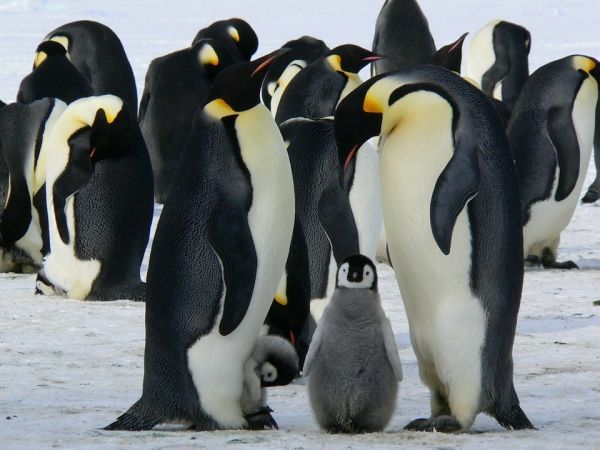British Antarctic Survey scientists have contributed to a new study published today (3 August) which provides valuable new data highlighting how emperor penguins extinction risk is increased due to rapid climate change and an increase in extreme climate events, such as glacial calving and sea ice loss. The study, published in the journal Global Change Biology led by Woods Hole Oceanographic Institution, and co-authored by an international team of scientists, policy experts, ecologists, and climate scientists, provides pivotal research and projections tailored for use by the U.S Fish & Wildlife Service (USFWS). The study recommends that emperor penguins be listed as threatened under the US Endangered Species Act and this week, the US Department of Interior/ USFWS submitted that listing recommendation.
“Scientists have a responsibility to make people aware of the need for change through objective evidence” explained lead author Stephanie Jenouvrier. “With the help of a dedicated team, we have put together this paper for the USFWS to provide additional analyses of future projections to help inform policy and protection for the species.”
The study presents the projected dynamics of all known emperor penguin colonies under different greenhouse gas emission scenarios using a climate‐dependent meta-population model that includes for the first time, the effects of extreme climate events based on the observational satellite record of colonies.
Read more at British Antarctic Survey
Photo Credit: MemoryCatcher via Pixabay


